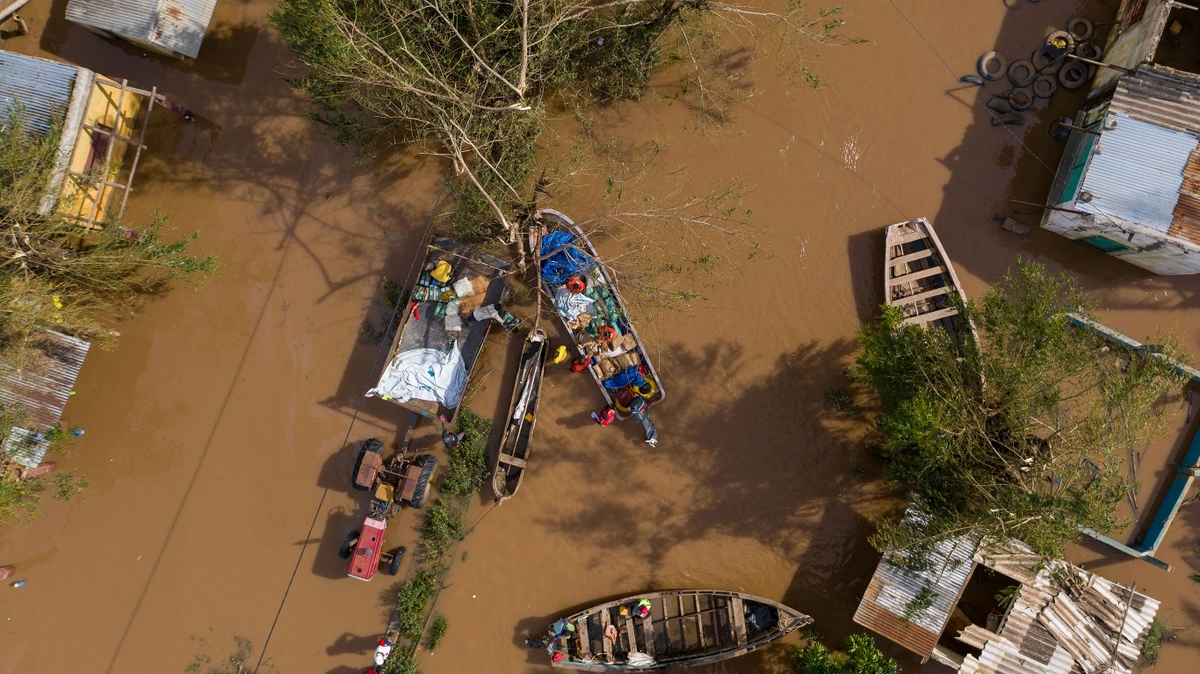
Citizens often face a wide variety of problems during flooding crises, but strong support from governments, NGOs and partners can overcome these challenges.
From waterborne diseases, to a decline in medicine availability, and the ability to travel, citizens are likely to face an array of problems during major fooding crises. But by overcoming these challenges one at a time, an upwards spiral can ensue, that sees one small success prompting another. And with continued wins comes improving morale, which makes recovery come even quicker.
Dealing with waterborne diseases
Where there are major floods, waterborne diseases often follow. During the 2022 Pakistan floods, there were outbreaks of various diseases, including malaria, diarrhoea and dengue. Floods swept the country from June to August, with thousands of people being infected by diseases, and dozens dying as a result.
However, actions were taken to limit the impact that waterborne diseases had on citizens. After mapping disease outbreak hotspots, it was possible to support the government in delivering essential medicines for affected areas. With many health facilities critically damaged too, it was crucial to prioritise repairs for facilities most in need. While this allowed for more people to receive emergency treatment, it also ensured that more medicines were available for people suffering from waterborne diseases.
Reaching health facilities
Even where there are functioning health facilities during flooding crises, the majority of people will be travelling by foot to reach them. This will likely mean passing through flooded areas, and thereby exposing further risk to waterborne diseases. In many cases, citizens will need to travel long distances of several or even dozens of kilometres away, just to reach the closest functioning health facility.
This is why it is crucial to set up temporary health camps in regions where people have little or no access to adequate facilities. Such support was provided to citizens during recent flooding crises in both Somalia and Pakistan. In Khyber Pakhtunkhwa, Pakistan, around 130 medical camps were set up to support citizens during the floods, thereby aiding on-the-ground relief efforts.
In order to set up these health camps, it is important to first identify potential sources of funding for facility rehabilitation. These sources could include local health council funds or the United Nations Office for Project Services (UNOPS). Once cost estimates are conducted for the rehabilitation of health facilities, the process for requesting health camps can begin.
Raising citizen morale
When flooding crises create such an impact on the lives of citizens, their morale may decline as a result. Their faith in public systems may even drop, due to the lack of staff and medicines to support them. This is why working to quickly provide citizens with healthcare essentials is so important. As relief efforts build, results can spiral upwards rather than downwards, which in turn allows for a more rapid recovery from severe flooding events.
Citizens will inevitably face many challenges during major flooding crises. From limiting the ability to travel, to being at risk of catching dangerous waterborne diseases, it is vital that governments, NGOs and partners take great action to support people. Setting up temporary health camps, repairing health facilities and delivering essential medicines are just a few steps that can be taken to support citizens. This has already been done in countries such as Somalia and Pakistan in recent flooding crises, so there are useful blueprints to follow for future crises.


